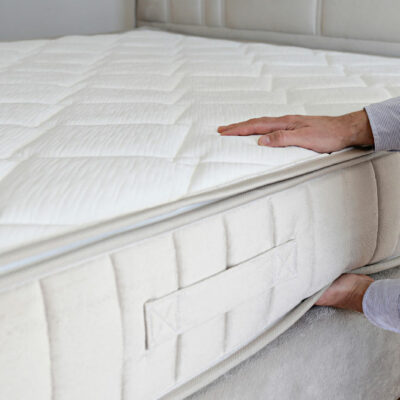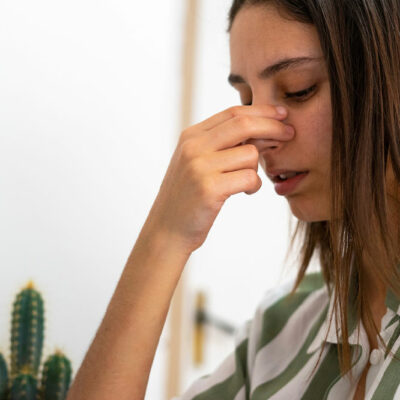12 common sleep mistakes to avoid

Quality sleep serves as the cornerstone of a healthy life. It rejuvenates the body, sharpens the mind, helps with immunity, enhances emotional stability, and supports cognitive functioning. Unfortunately, various factors can disrupt sleep, leaving one restless and fatigued. Here are some common habits that could be sabotaging sleep and lending to the feeling of being tired despite getting in those recommended 7-9 hours of sleep.
Inconsistent Sleep Schedule
The body operates on a natural internal clock known as the circadian rhythm. This internal clock regulates the sleep-wake cycle, impacting various physiological processes. Maintain a consistent sleep schedule to regulate this cycle. This natural cycle is disrupted when one varies their timings and amount of sleep. Any inconsistency in the sleep schedule can lead to lethargy and grogginess that can affect the day’s rhythm.
Overdoing Caffeine
Caffeine is a powerful stimulant that helps one stay awake and concentrate on the task at hand. But drinking more than necessary can keep one up till late and interfere with the ability to fall asleep. Drinking caffeine-containing beverages like tea, coffee, and soft drinks close to bedtime can cause restlessness and make it difficult to achieve deep and restorative sleep. Therefore, avoiding or limiting caffeine intake during the second half of the day is advisable to clock in quality sleep.
Inadequate Sleep Environment
One of the most basic things that are essential for some quality sleep is creating a conducive sleep environment. Factors such as inappropriate temperature, uncomfortable mattresses, and excessive noise in the room must be addressed to ensure a restful night’s sleep.
Blue Light Exposure
Melatonin, a hormone, is an essential chemical produced by the brain that regulates sleep-wake cycles. Exposure to devices that emit blue lights, like tablets, TVs, laptops, and phones, can suppress the production of this chemical compound. Using screens closer to bedtime can impact the body and brain’s ability to fall asleep. In other words, blue light keeps the individual’s body from preparing for sleep. It is suggested to avoid exposure to electronic screens for at least an hour before bedtime.
Lack of Activity
Like with everything else, regular physical activity can also improve a person’s sleep quality. However, it is important to note that engaging in vigorous exercise closer to bedtime can have the opposite effect. Doing so raises the individual’s heart rate and body temperature, making it harder for the person to relax and fall asleep. It’s best to complete any strenuous activity a few hours before bedtime for improved sleep.
Heavy Dinners
Another factor that could be making it harder to fall asleep is the intake of heavy or spicy meals closer to bedtime. It could cause the individual to experience some discomfort and make them restless. The body expends energy during digestion, which diverts resources from the restorative processes during sleep. It is advisable to eat lighter meals at least a few hours before sleep to support the quality of sleep.
Failing to Seek Help
Persistent sleep disturbances may indicate underlying sleep conditions like insomnia, sleep apnea, and other sleep-related disorders. Ignoring these issues can lead to long-term health consequences. A healthcare professional or sleep specialist could help identify and address any potential sleep-related disorders.
Not Having a Routine
Establishing a calming bedtime routine signals the body that it is time to wind down. Neglecting this routine can lead to difficulty transitioning from wakefulness to sleep soundly. Activities like taking a warm bath or a shower, relaxation exercises like deep breathing or meditation, and reading a book can help prepare the body for quality sleep time.
Excessive Screen Time
Engaging with a screen close to bedtime is bad not only because it exposes the individual to blue light, but it stimulates the mind as well. This makes it harder to be able to wind down and fall asleep. Activities such as browsing social media, watching intense movies or television shows, or participating in engaging games can lead to heightened alertness, making it even more challenging for the individual to fall asleep.
Not Selecting the Right Mattress and Pillows
Choosing the right mattress plays a pivotal role in sleep quality. Selecting the right kind provides proper support to the spine and helps alleviate pressure points. On the other hand, choosing the wrong mattresses can leave one with a long list of issues involving the neck, back, and head. It is advisable to look into the options and select a mattress that caters to one’s need.
While medium-firm mattresses are often recommended, personal preference remains a significant factor. Individuals can explore various mattress types, including memory foam, innerspring, and hybrid options, to discover what suits them best. Additionally, choosing pillows that support the neck’s natural curve ensures spinal alignment and can significantly enhance sleep quality.
Not Choosing the Right Bedding
Bedding is crucial in helping one get a good night’s sleep by providing comfort, regulating temperature, and creating a soothing sleep environment. Quality bedding materials such as cotton, linen, or microfiber can feel comfortable against the skin, reducing discomfort and promoting relaxation. Bedding materials can help regulate body temperature, essential for a good night’s sleep. Breathable fabrics like cotton and linen allow for better airflow, helping one stay cool in warmer months, while materials like flannel or fleece can provide warmth during colder seasons. The right combination of sheets and blankets can help one adjust their sleeping temperature. Hypoallergenic bedding, including pillows and mattress covers, can protect against dust mites, pet dander, and other allergens that may disrupt sleep. Pillows and mattress toppers can affect the support one’s body receives while sleeping. A comfortable and supportive mattress topper can alleviate pressure points and enhance overall sleep quality.
Not Managing Stress
Stress and anxiety can make falling asleep and staying asleep a challenge, significantly and negatively impacting sleep quality. Incorporating stress management techniques such as mindful meditation and journaling, into the daily routine or seeking support from a therapist or counselor can help reduce stress levels and promote better sleep.
















